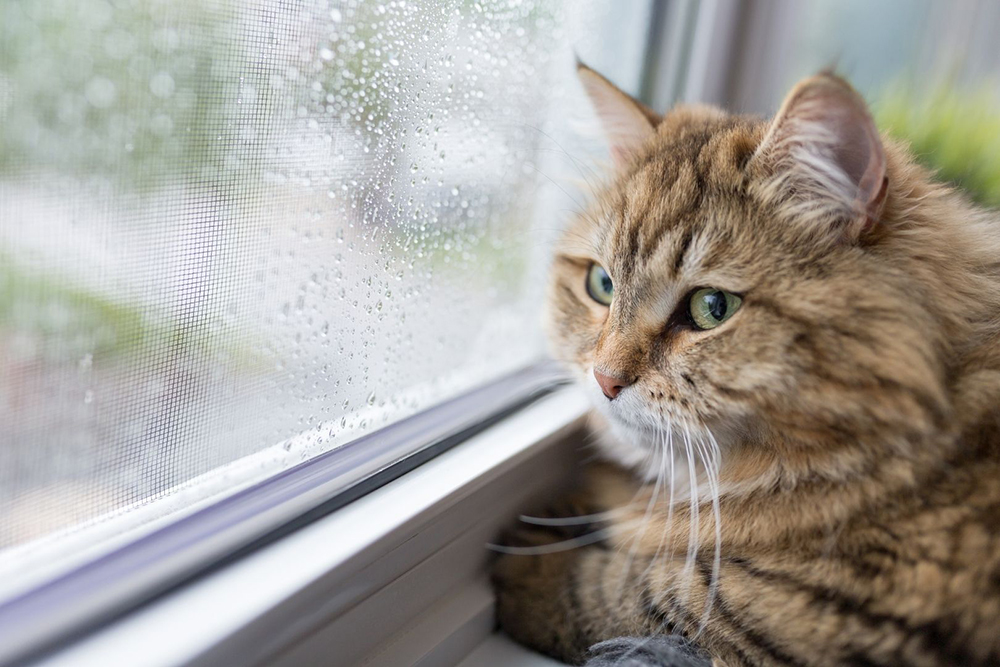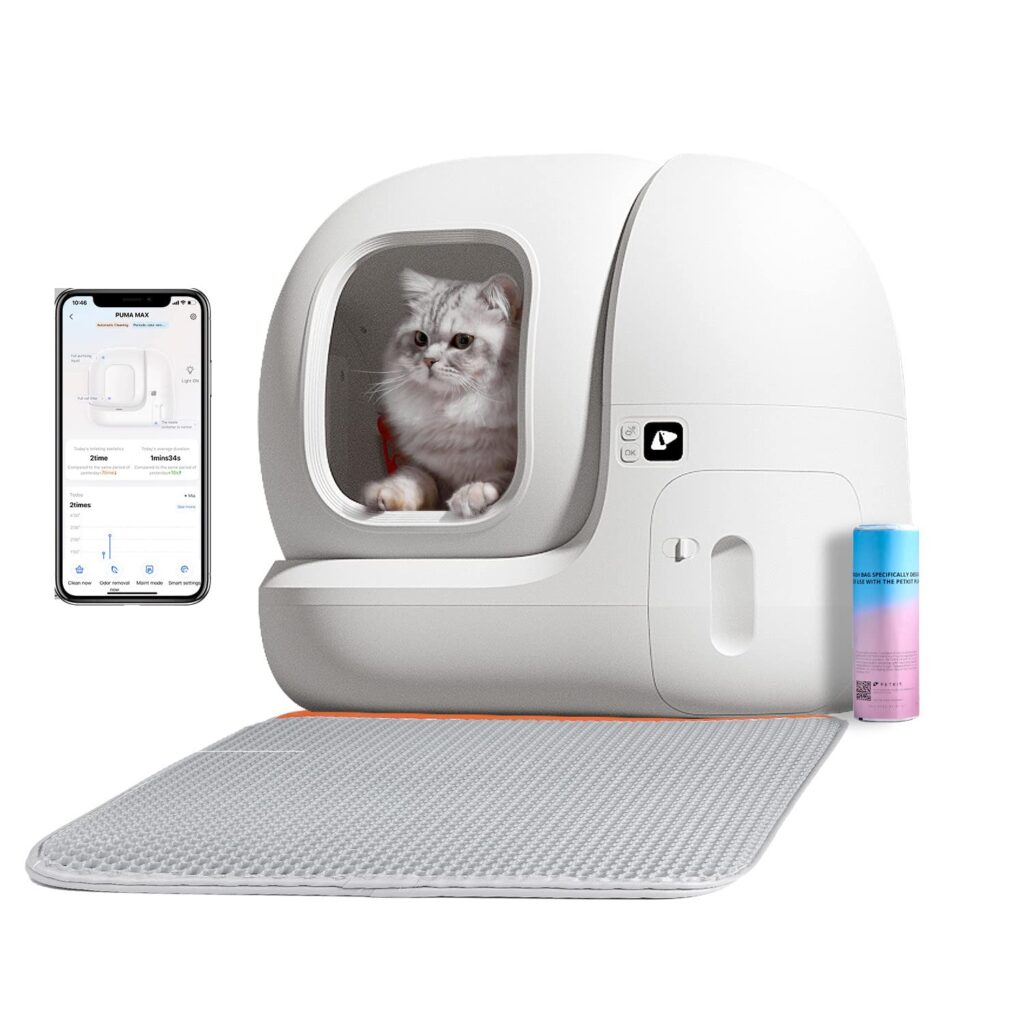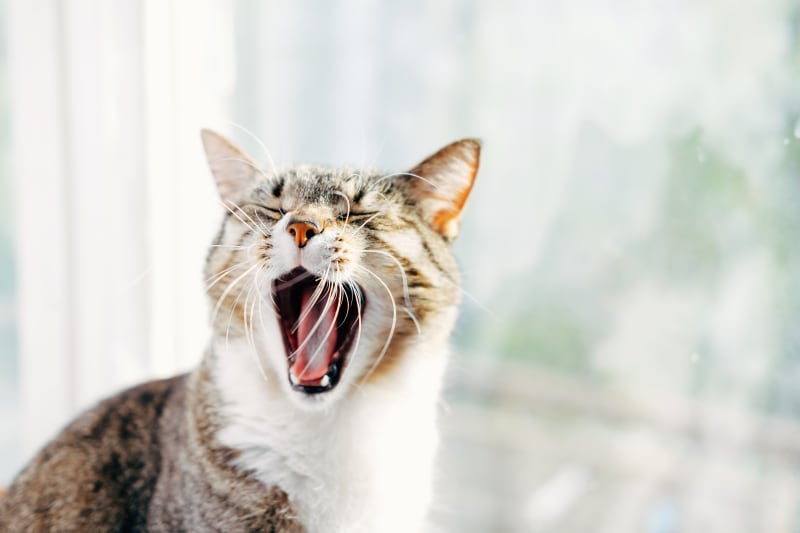8 warning signs of cat depression after a new kitten: loss of appetite, excessive sleeping, hiding, aggression, excessive grooming, destructive behavior, vocalization changes, and decreased affection towards owners. Cats may exhibit these signs when they feel overwhelmed, stressed, or jealous of the new addition to the family.
It’s important to recognize these warning signs and provide extra attention, love, and reassurance to help your cat adjust to the new kitten.

Credit: weareallaboutcats.com
Contents
- 1 Understanding The Emotional Wellbeing Of Cats
- 2 The Impact Of A New Kitten On A Resident Cat
- 3 8 Warning Signs Of Cat Depression After A New Kitten
- 4 Understanding The Cause Of Cat Depression
- 5 Strategies To Help A Depressed Cat
- 6 Preventing Cat Depression In The Future
- 7 Frequently Asked Questions For 8 Warning Signs Of Cat Depression After A New Kitten
- 8 Conclusion
Understanding The Emotional Wellbeing Of Cats
Cats are not just independent and self-reliant creatures; they also have emotional needs that require attention and care. Recognizing the signs of cat depression is crucial in helping our feline friends live a happy and healthy life. Here are 8 warning signs that indicate your cat may be experiencing depression after bringing a new kitten into your home:
| 1. Decreased appetite: If your cat seems uninterested in food or doesn’t eat as much as usual, it could be a sign of depression. | 2. Avoidance behaviors: Cats may try to avoid interactions with the new kitten, hiding or staying in a different part of the house. |
| 3. Excessive grooming: Over-grooming or excessively licking their fur is another indicator of stress or depression in cats. | 4. Changes in litter box habits: Urinating or defecating outside the litter box could signal emotional distress. |
| 5. Aggression: If your cat starts displaying aggressive behavior towards the new kitten or other pets, it may be a sign of depression. | 6. Lethargy: A lack of interest in playing, decreased activity level, and increased sleeping could be signs of depression. |
| 7. Excessive vocalization: Cats may start meowing excessively or making other unusual noises when they are feeling stressed or unhappy. | 8. Weight loss: Depression can lead to a decrease in appetite, resulting in weight loss over time. |
If you notice any of these warning signs, it’s important to consult with your vet to rule out any underlying health issues and seek appropriate treatment. Providing a safe and comfortable environment for your cat is essential for their emotional wellbeing and overall happiness.
The Impact Of A New Kitten On A Resident Cat
Introducing a new kitten to your household can have a significant impact on your resident cat. It is important to recognize the warning signs of cat depression and understand the changes in dynamics and hierarchy that may occur.
One of the first signs of cat depression after bringing in a new kitten is a change in appetite. Your resident cat may start to eat less or lose interest in food altogether. They may also become more lethargic and spend more time sleeping than usual.
Another warning sign is a change in behavior. Your resident cat may start to withdraw and become more isolated. They may avoid interactions with other pets or family members. They may also exhibit aggressive behavior towards the new kitten or show signs of anxiety such as excessive grooming or overeating.
It is important to give your resident cat time and space to adjust to the new addition. Gradually introducing the new kitten to your resident cat can help minimize the impact on their dynamics and hierarchy. Providing separate spaces and resources for each cat, such as separate feeding areas and litter boxes, can also help reduce tension between them.
8 Warning Signs Of Cat Depression After A New Kitten
Warning Sign 1: Increased lethargy and lack of interest
After introducing a new kitten into the household, it’s not uncommon for your cat to display increased lethargy and lack of interest. They may spend more time sleeping and seem disinterested in activities they once enjoyed.
Warning Sign 2: Changes in appetite or weight
Monitor your cat’s eating habits after bringing a new kitten home. Look for changes such as decreased appetite or sudden weight loss. These signs could indicate depression.
Warning Sign 3: Excessive grooming or lack of grooming
A depressed cat may respond to stress by excessively grooming themselves or, conversely, neglecting their grooming routine altogether. Pay attention to any unusual behavior.
If your cat shows a sudden disinterest in socializing with you or other pets in the household, it could be a sign of depression. They may hide more often or avoid contact.
Depression can also manifest as increased aggression or irritability in cats. Watch for any unusual and unprovoked displays of aggression towards humans or other animals.
Warning Sign 6: Marked change in litter box habits
Keep an eye on your cat’s litter box habits. Prolonged depression can lead to a change in their bathroom behaviors, such as frequent accidents outside the litter box.
Warning Sign 7: Excessive vocalization or excessive silence
Depressed cats may become more vocal than usual or, alternatively, withdraw and become unusually silent. Pay attention to any significant changes in their vocalization patterns.
Warning Sign 8: Self-destructive behaviors or physical symptoms
Extreme cases of cat depression may lead to self-destructive behaviors or the development of physical symptoms like loss of fur, overeating, or excessively scratching their skin.
Understanding The Cause Of Cat Depression
Understanding the cause of cat depression can help determine the best course of action to alleviate its symptoms. Feelings of displacement or loss can occur when a new kitten is introduced into the household, causing the resident cat to feel neglected or less important. This can lead to a range of depressive behaviors, such as decreased appetite and withdrawal.
Insecurity and fear of change can also contribute to cat depression. Cats are creatures of habit and disruptions to their routine or environment can cause stress and anxiety. This can manifest as lethargy, excessive grooming, or aggression.
Furthermore, lack of territory or personal space can be a source of distress for cats. When a new kitten enters the picture, the resident cat may feel threatened and territorial, leading to feelings of unease or displacement.
Recognizing these warning signs and addressing their underlying causes are crucial in helping cats overcome depression and adjust to the presence of a new kitten.
Strategies To Help A Depressed Cat
The addition of a new kitten to your household can sometimes cause a cat to experience feelings of depression. It is important to keep an eye out for warning signs and take action to help your cat feel happier and more secure.
One of the strategies to help a depressed cat is to provide a safe and secure space. This can be achieved by setting up a designated area in your home where your cat can retreat to and feel safe. This space should be quiet, comfortable, and free from any potential stressors.
Maintaining a consistent routine is also crucial in supporting your cat’s mental well-being. Cats thrive on predictability, so it is important to stick to a regular feeding, playtime, and sleep schedule. This can help provide a sense of stability and security.
Encouraging positive interactions between your new kitten and your older cat can also be beneficial. Gradually introducing the two cats and supervising their interactions can help build a bond and reduce any negative feelings.
Offering mental stimulation and enrichment is another effective strategy. Providing interactive toys, puzzle feeders, and vertical spaces for climbing can help keep your cat engaged and prevent boredom.
If your cat’s depression persists or worsens, seeking professional help is recommended. A veterinarian or a feline behaviorist can help assess the situation and provide appropriate guidance and treatment options.
Preventing Cat Depression In The Future
Introducing a new kitten to your resident cat can be an exciting time, but it’s important to be aware of the signs of cat depression that may occur afterwards. To ensure a smooth transition and prevent your cat from becoming depressed, follow these guidelines:
- Gradual introductions of new pets: Allow your resident cat to adjust to the presence of the new kitten slowly. Start by swapping their scents and gradually introduce them in controlled environments.
- Prioritize the emotional needs of your resident cat: Give your existing cat plenty of attention, love, and reassurance. Ensure that they don’t feel neglected or replaced by the new addition.
- Create a harmonious environment: Provide separate spaces, litter boxes, and feeding areas for each cat. This will prevent territorial conflicts and promote a peaceful atmosphere.
- Consistent socialization and mental stimulation: Engage both your resident cat and new kitten in regular play sessions and activities. This will help keep them mentally stimulated and alleviate any feelings of loneliness.
By following these strategies, you can ensure a smoother transition for your resident cat and minimize the risk of cat depression after introducing a new kitten.
Frequently Asked Questions For 8 Warning Signs Of Cat Depression After A New Kitten
What Are The Warning Signs Of Cat Depression After Getting A New Kitten?
The warning signs of cat depression after getting a new kitten may include decreased appetite, excessive sleeping, hiding more often, reduced grooming, and lack of interest in playtime. If you notice these signs, it’s important to provide extra attention and love to your cat, and consult with a veterinarian if the symptoms persist.
Conclusion
Recognizing the warning signs of cat depression after introducing a new kitten is crucial for a harmonious feline family. From changes in appetite to loss of interest in play, be attentive to your cat’s behavior. Remember, attentiveness and proper care can help alleviate their depression and ensure their wellbeing.
By understanding these signs and addressing them promptly, you can create a happy and peaceful home for all your furry companions.

Katie Lindsey is a passionate cat lover and founder of Cats Solution, a comprehensive resource for all things feline. With a lifelong love for cats and extensive knowledge in their care and behavior, she provides expert advice and solutions to cat owners. Through her website, Katie fosters a supportive community where cat enthusiasts can find guidance and heartwarming stories. A dedicated advocate for animal welfare, Katie also promotes responsible pet ownership and adoption. Join her on this purr-fect journey celebrating the joy of feline companionship.



